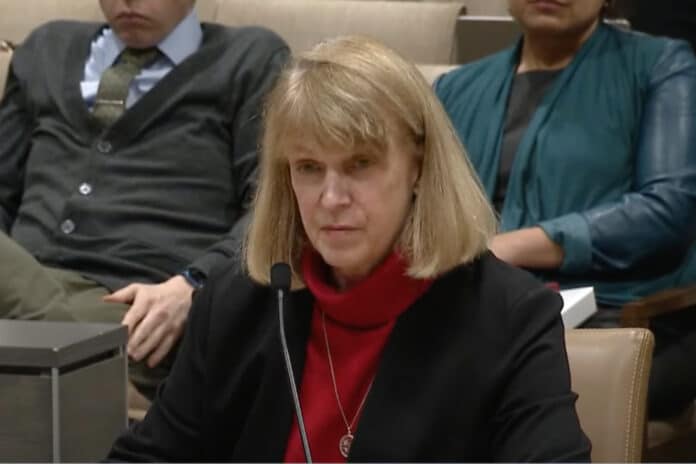
A new report from the Office of the Legislative Auditor (OLA) found that the Minnesota Department of Human Services (DHS) has not tried to recover over $40 million in overpayments that went to healthcare providers under the state’s Medical Assistance program.
In Minnesota, DHS is responsible for administering several healthcare programs including Medical Assistance (MA), the state’s Medicaid program.
Among other things, the MA program requires healthcare providers to submit claims to DHS for reimbursement. However, claims paid by DHS are sometimes adjusted for a variety of reasons including rate changes; this can result in providers being overpaid by DHS.
According to an OLA report that was issued Tuesday, DHS “has not attempted to recover over $40 million in outstanding overpayments to Medical Assistance providers’ accounts.” Furthermore, the report says that the agency last made an attempt to recoup some of the debt in 2019 when it sent one notice to a provider.
“The last date for which DHS has documentation that it mailed collection notices to numerous MA providers is February 11, 2015,” says the report.
In addition, the OLA report says DHS plans to pass on collecting some of the outstanding, recoverable funds. According to the report, DHS plans to not collect overpayments that are either less than $1,000 or were made more than six years ago; the OLA and DHS disagreed on whether a six-year statute of limitations prevents the collection of the funds.
The report also found that DHS did not adequately track documentation and figures relating to the debt owed by the providers.
In turn, the OLA recommended that DHS recover the outstanding funds, establish better controls for doing so in the future, work with the Minnesota Legislature to get a better understanding of its own authority to collect the payments, and maintain more accurate documentation regarding these finances.
Response from the Department of Human Services
Writing in response to the OLA’s report, DHS Commissioner Jodi Harpstead agreed with most of the report’s findings, but disagreed with other parts.
According to the commissioner, the majority of the providers with outstanding debts are “no longer doing business,” and DHS has attempted to recover the funds but has experienced “very low return on any recovery work.”
Regarding the OLA’s statement about DHS not attempting to recover overpaid funds, Harpstead said DHS “partially agrees with this finding.” Although, the commissioner did say DHS “routinely recovers provider overpayments” from providers that are currently enrolled in the department’s claims process. In addition, DHS is developing a new process for recovering funds referenced by the report.
However, DHS said it “respectfully disagrees” with the OLA’s finding about DHS “planning to forgo recovery of outstanding provider debt.” In her letter, the commissioner appeared to indicate that DHS does not have the authority to collect overpayments outside a six-year statute of limitations period.
“OLA does not identify sufficient authority to substantiate a finding or suggestion that [DHS] has legally enforceable options to collect provider balances beyond the limitations period. [DHS], however, intends to send notices requesting repayment from providers whose debts are more than 6 years old, above $1,000, and for whom the Department has contact information.”
Regarding overpayments worth less than $1,000, the commissioner said, “Identifying, addressing, and pursuing these balances, particularly the older balances is a time-consuming and administratively burdensome process. [DHS] has elected to write-off balances of less than $1,000 (the average value of provider credits below $1,000 is $162) and directed staff to other activities with a greater return on investment for Minnesota taxpayers.”
Discussing other findings and recommendations, Harpstead said that DHS “is happy to work with the Legislature” to clarify DHS’s authority on collecting the overpayments. Furthermore, DHS agreed with recommendations about keeping more accurate figures and documentation relating to the overpayments.
The commissioner also noted that DHS agreed with all of the OLA’s recommendations and has already begun implementing them.
Reaction from lawmakers
“It’s shocking that the Department of Human Services still does not have processes in place to stop and prevent waste of taxpayer dollars,” said House Speaker-designate Lisa Demuth, the leader of the House Republicans.
“Even more concerning are the apparent accounting practices that are inaccurate at best, or deceptive at worst. DHS is failing at their basic responsibilities, and once again there has been no accountability from Gov. Walz or Commissioner Jodi Harpstead. Until agencies and commissioners are held accountable for their failures to follow basic accounting practices under state law, these problems will continue. One of House Republicans’ top priorities next session will be to stop waste and fraud in our agencies; DHS is clearly at the top of the list and should expect more scrutiny in the coming weeks and months,” added the GOP leader.
State Sen. Paul Utke, R-Park Rapids, the Republican lead on the Senate Health and Human Services Committee, also issued a statement on the matter.
“This is just another example in a long string of failures by state agencies to do their job with the highest diligence and integrity,” said Sen. Utke. “The Department of Human Services is one of the largest and fastest growing areas of our budget. With a deficit looming, this is exactly the kind of waste Minnesotans expect us to stay on top of. Taxpayers should not pay higher taxes because DHS failed to comply with basic accounting practices and can’t afford to provide the health care services people need.”
“Minnesotans expect better from their government, and they are tired of the same excuses from Governor Walz and Democrats. There needs to be real accountability and leadership to see any change, but sadly, I don’t think the Governor has it in him,” added Utke.
Alpha News reached out to Gov. Tim Walz but did not hear back.

















